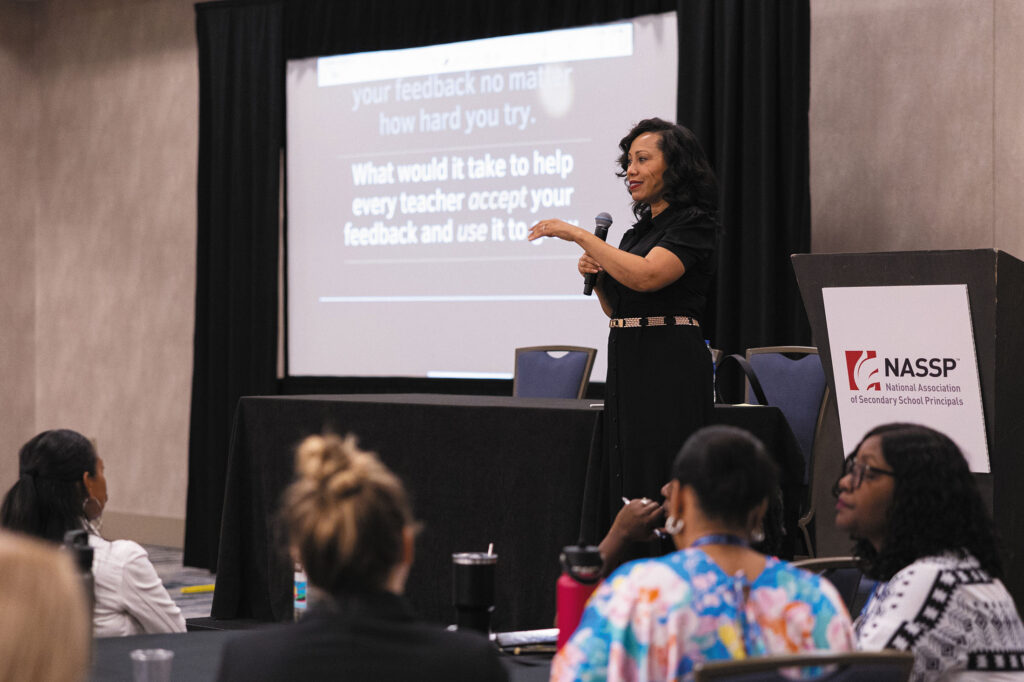How to Hire Your Next AP

We all know that having a really great assistant principal can make a huge difference in your school. Hire the wrong AP and you’re in for a year of misery.
But when you hire the right AP, you have a partner who can truly take some things off your plate and support the work you are doing in your school. The challenge is many of us weren’t trained on how to hire effectively. I want to break down the entire hiring process and give you practical tips for navigating each stage.
Even if you aren’t currently looking for a new AP, you’ll find this article helpful because you can use these tools to effectively hire for any leadership position in your school.
Let’s dive in.
Stage 1: Attract
The first stage of the hiring process is to attract the right people to apply for the position. Normally, we post a generic job description that looks just like every other listing out there. But, if you really want to attract the right people, your job description needs to be much more intentional.
First, you need to sell your school and help people understand why it is a great place to work. Share your demographics and talk about your culture. If you have a vision, mission, and core values, this is a great place to share them as well. If they are specific enough, you will naturally attract people who share them, and more importantly, you’ll repel those who don’t.
Next, share a little about who the ideal person for the role is. Don’t just focus on qualifications, also include other characteristics that will make the person a great fit. Think about your school’s culture, and the unique demands of the job. The more specific you can be here, the better. You want someone to read it and think, “That’s me!”
You’ll also want to share a bit about the process you’ll be using to screen and hire so that you can manage expectations. Share what your process looks like, your timeline, and the next steps a person should take. That way, your candidates know exactly what to expect from the process.
Finally, spell out exactly what you want the candidate to do if they are interested. Should they send a resume? Do they need a cover letter? Should they call to set up an appointment? Again, be specific so your candidates can successfully navigate your process.

Stage 2: Screen
Once you’ve created your job posting and have a group of qualified candidates, the next step is to conduct interviews to identify someone who is the right fit. Typically, interviews include pretty generic questions from which you get generic answers that really don’t tell you much about whether the candidate is truly the right person for the job. Instead of asking the typical, “So tell me about yourself,” or, “What are your strengths and weaknesses?” ask these three types of questions instead.
1. Alignment questions. The right candidate should align closely with your vision, mission, and core values. To that end, these questions are designed to help you discern whether the candidate believes in your vision, supports your mission, and considers your core values non-negotiable or is merely paying lip service to them in order to get the job. Here are a few examples:
- Our vision is that 100% of students are proficient or above in math and reading. Right now we are 42% proficient in math and 47% proficient in reading. Do you believe that 100% proficiency is possible in the next three years and if so, what do you think it would take to make our vision a reality?
- Our mission is to help students have more options and make better choices. What does that mean to you?
- One of our core values is “Find the Joy.” Is there ever a circumstance where finding the joy is not possible or even realistic?
- What are your non-negotiables?
2. Cultural fit questions. Sometimes a person might have the qualifications for the job but not be a cultural fit. So, it’s important to determine whether the candidate will fit in your school culture. Ask questions like:
- What is your ideal workday?
- What motivates you?
- How do you like to receive feedback? What’s your preferred way of giving feedback?
- Tell me about a time when you had a teacher who didn’t immediately respond to your feedback. How did you help the teacher continue to grow?
- How do you typically deal with student discipline? Can you give me a specific example of a student with whom you used this approach and what was the outcome?
3. Role questions. It’s important that you and your AP are aligned around how you both see the role. Therefore, you need to ask a few questions to help you clarify how they see the AP role to make sure that you are both on the same page. Instead of offering hypothetical questions, the best approach is to take a real problem you are currently facing at your school and ask them what they would do to solve it. Not only will you get insight into how they think and process problems, they may offer you fresh ideas you haven’t considered. These questions also give the candidate a sense of what they can expect from the role. Here are a couple examples:
- How do you see the role of an AP?
- One of our big challenges right now is that our seventh graders are really struggling with being accountable for their behavior. There’s some bullying happening online that is trickling into the school. As the seventh-grade AP, what steps would you take to solve this problem?
- Right now, we have an inactive PTA. What are some of your ideas to get parents more engaged in our school?
Once you complete the interview, it’s a great idea to walk the candidate around the school and watch their reaction. Do they seem delighted by your students or indifferent to them? Peek in a few classrooms and see what they think of the instruction. Pay attention to how they interact with staff members when introduced. This will round out your opinion of the candidate and help you determine whether they are the right fit.
Stage 3: Onboard
Once you select your candidate, the last part of the process is to properly onboard your new AP. That way, you can set them up for success from the very beginning.
1. Connect them to your school purpose. From the very beginning, take time to explain your school vision, mission, and core values and get them immediately connected to the larger purpose of the work. Show the new AP how their role advances your vision, aligns with your mission, and is bounded by your core values.
2. Share success measures. What does success in the role look like? Be specific here. You want to agree on specific success measures. For instance, a task you might want your AP to perform is to attend the seventh-grade PLC meetings each week but the success criteria is that the AP “ensures that all PLC meetings are focused on proactive problem-solving for students.” For each task you want the AP to complete, define exactly what successfully completing that task looks like.
3. Develop an onboarding plan. Onboarding a new person properly can’t be accomplished in a single meeting. It takes at least a month to get someone comfortably engaged in their new role. Develop a specific onboarding plan that covers four key time frames.
- First day: Help the new AP settle in comfortably. Focus on showing them how to navigate your school and introduce them to the key people with whom they will be working.
- First week: Spend time helping your new AP acclimate to their role. Go through the specific tasks of the role and their success criteria and get them started assuming their new responsibilities. Meet with them at the end of the week to debrief.
- First month: Work closely with your new AP and give them plenty of feedback early to help them form great habits and to ensure they can be successful in their new role.
- First quarter: Develop a meeting and feedback rhythm that you will use going forward and meet at the end of the first quarter to share and collect feedback and make adjustments to the role as needed.
Hiring an AP is one of the most important decisions you can make. Doing so with intention and purpose will ensure that you attract and hire an amazing AP who can truly be a partner in your work and an asset to your school.
Robyn R. Jackson, PhD, is the founder of Buildership University. A former teacher, instructional coach, and school administrator, she helps principals achieve success for 100% of their students with the people and resources they already have. Learn more at BuildershipUniversity.com.
